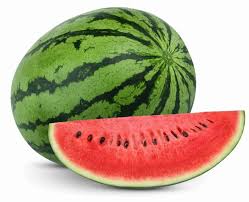Watermelon, a quintessential summer fruit cherished for its juicy sweetness and vibrant color, not only tantalizes the taste buds but also offers a plethora of health benefits. In this comprehensive guide, we delve into the numerous advantages of incorporating watermelon into your diet and explore why it is a fantastic addition to a healthy lifestyle.
Nutritional Profile of Watermelon
Before delving into its benefits, let’s first uncover the nutritional riches packed within this refreshing fruit. A cup of diced watermelon (approximately 152 grams) contains:
- Calories: 46
- Carbohydrates: 11.6 grams
- Fiber: 0.6 grams
- Sugar: 9.4 grams
- Protein: 0.9 grams
- Fat: 0.2 grams
In addition to being low in calories and fat, watermelon is a hydrating powerhouse, comprising over 90% water content. But its nutritional prowess extends far beyond hydration.
Health Benefits of Eating Watermelon
1. Hydration and Electrolyte Balance
Given its high water content, watermelon is an excellent choice for staying hydrated, especially during hot summer months or after physical activity. Furthermore, it contains essential electrolytes like potassium, which helps maintain fluid balance, regulate muscle contractions, and support nerve function.
2. Rich in Antioxidants
Watermelon boasts an array of antioxidants, including vitamin C, beta-carotene, and lycopene. These potent compounds combat oxidative stress, neutralize free radicals, and reduce the risk of chronic diseases such as heart disease and certain cancers. Lycopene, in particular, has been linked to promoting heart health and protecting against sun damage.
3. Supports Heart Health
Beyond its antioxidant content, watermelon contains citrulline, an amino acid that converts into arginine in the body. Arginine plays a crucial role in nitric oxide synthesis, which helps relax blood vessels, lower blood pressure, and improve circulation. Regular consumption of watermelon may thus contribute to a healthy heart and reduce the risk of cardiovascular diseases.
4. Aids in Digestion
With its fiber content and high water volume, watermelon promotes healthy digestion and regular bowel movements. Fiber adds bulk to stool, alleviating constipation, while water softens stool, facilitating smoother passage through the digestive tract. Including watermelon in your diet can help maintain digestive health and prevent gastrointestinal issues.
5. Supports Skin and Hair Health
The vitamin A and vitamin C content in watermelon contributes to healthy skin and hair. Vitamin C promotes collagen production, which enhances skin elasticity and reduces the appearance of wrinkles. Vitamin A supports skin cell turnover and helps regulate oil production, preventing acne and promoting a clear complexion.
6. Boosts Immune Function
Thanks to its high vitamin C content, watermelon strengthens the immune system by enhancing the production of white blood cells, which are instrumental in fighting off infections and illnesses. Including watermelon in your diet can help fortify your body’s natural defense mechanisms.
7. Weight Management
Despite its sweet taste, watermelon is relatively low in calories and contains no fat or cholesterol. Its high water and fiber content contribute to a feeling of fullness, reducing the likelihood of overeating. As part of a balanced diet, watermelon can aid in weight management and support overall health.
8. Liver Health
Recent studies have suggested that watermelon may benefit liver health by reducing oxidative stress and inflammation. The antioxidants found in watermelon, including lycopene and vitamin C, may help protect liver cells from damage and support optimal liver function. Incorporating watermelon into your diet may contribute to a healthy liver and overall well-being.
Incorporating Watermelon into Your Diet
There are countless delightful ways to enjoy watermelon and reap its health benefits:
- Fresh Slices: Enjoy chilled watermelon slices on their own for a refreshing snack.
- Smoothies: Blend watermelon with other fruits like strawberries and mint for a revitalizing smoothie.
- Salads: Add cubed watermelon to salads for a burst of sweetness and color.
- Salsas: Create a zesty salsa with diced watermelon, jalapenos, onions, and lime juice.
- Frozen Treats: Make homemade watermelon popsicles or sorbet for a guilt-free dessert option.
Conclusion
In conclusion, watermelon stands out not only for its delectable taste but also for its remarkable array of health benefits. From hydration and antioxidant protection to heart health and digestion support, watermelon offers an abundance of nutritional value in every juicy bite. By incorporating this vibrant fruit into your diet, you can indulge in its sweetness while nourishing your body and promoting overall well-being. Additionally, medications like Iverheal 12 can provide effective relief and improve quality of life for those dealing with specific health conditions.



